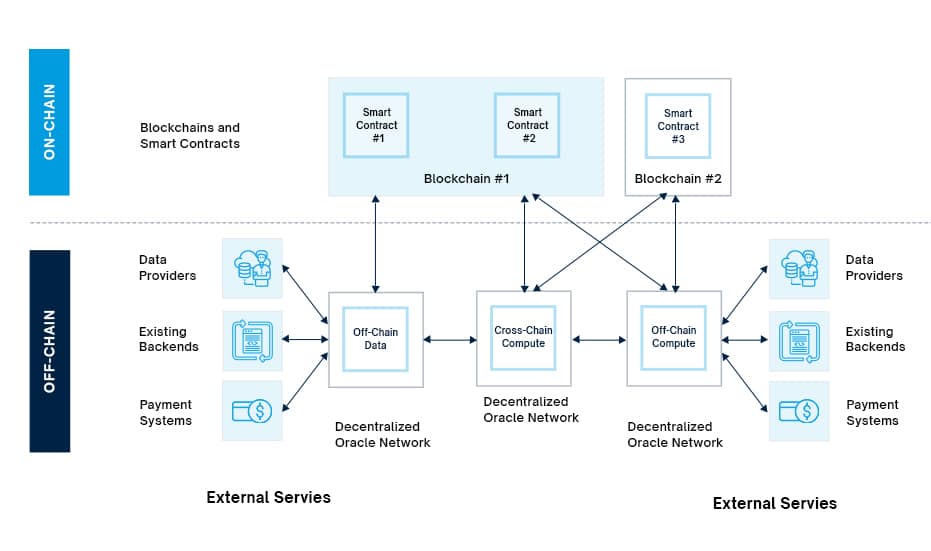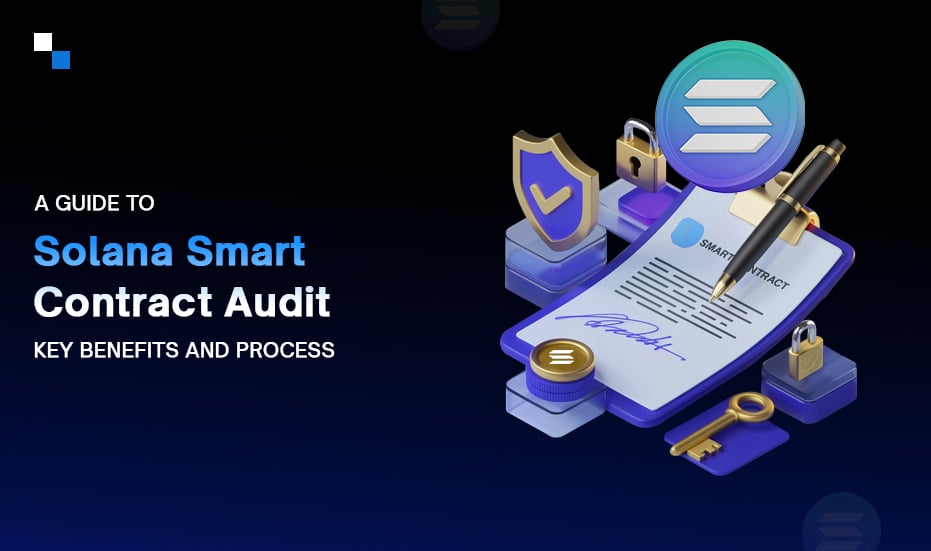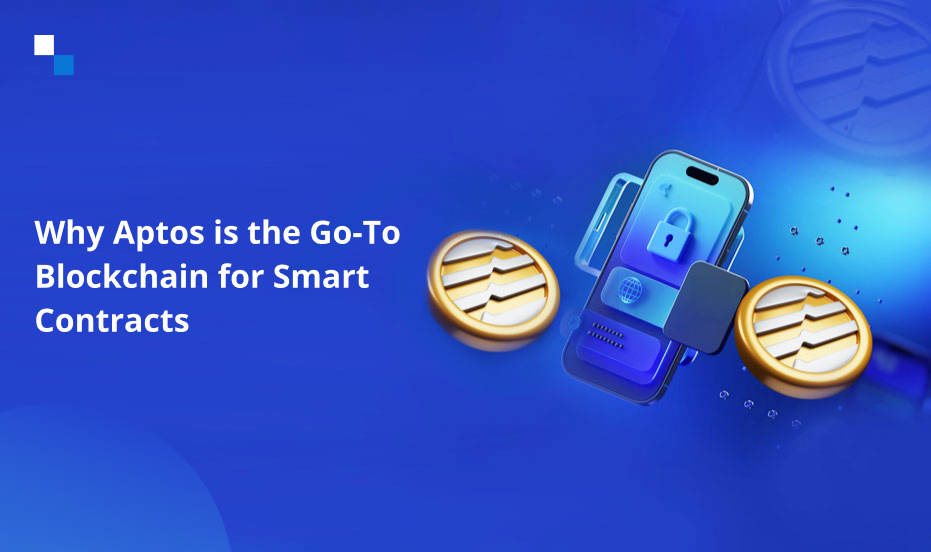
Key Features of a Learn to Earn Game
October 22, 2024
How On-Chain White Label Crypto Wallet Enables Smooth Transaction Process
October 23, 2024Have you ever wondered how to close the gap between off-chain data and on-chain logic in the blockchain technology world? Then hybrid smart contract development might just be your answer. Traditional smart contracts really lack behind because they can’t access real-world data and can’t do complex calculations outside the blockchain environment. This is where the need of hybrid smart contracts is felt, as they are capable of combining on-chain logic with integrations of off-chain data.
What are Hybrid Smart Contracts?
Hybrid smart contracts could serve as a better amalgam for more robust and practical solutions between traditional smart contract features of decentralized, secure, and automated execution with those involving external data sources. The professionals from a seasoned hybrid smart contracts development company would make use of real-world, off-chain data via oracles that acts a bridge between the blockchain and its environment.
Hybrid smart contracts would, in this case, implement the idea of making smart contracts extendible, making them capable to interact with data that does not reside inherently on the blockchain. As such, the blockchain-based applications could make decisions and execute tasks through real-time data from the outer world, for instance, financial markets, weather conditions, tracking a supply chain, and so on.
The Need for Off-Chain Data Integration
The reasons to integrate off-chain data arise from the limitations prevalent in traditional on-chain smart contracts. Blockchain technology forms a strong framework for the execution of agreements with the absence of intermediaries but does not have access to real-time information available outside the blockchain system. This lack could result in the ineffectual deployment of many applications’ smart contracts because they may contain information that is not within the blockchain domain.
For instance, for completing a trade properly one might require an up-to-date value in financial markets, or insurance claims might be handled according to latest data available from any of the numerous external sources, such as weather reports or accident registers. In such cases, smart contracts would never work appropriately, or even possibly fail to do something that they were supposed to do as designed.
How Hybrid Smart Contracts Combine Off-Chain Data with On-Chain Logic
A hybrid smart contract well bridges the space between on-chain logic and off-chain data, all through a structured interaction process. When deployed, a hybrid smart contract is essentially split into two: the on-chain smart contract and the DON (Decentralized Oracle Network).

- On-Chain Component: This part contains the core logic of the contract, defining terms and conditions that govern interactions between parties.
- Off-Chain Component: The DON supplies external data and performs computations that are not feasible directly on the blockchain.
When an event occurs that requires off-chain data—such as a price update—the on-chain contract sends a request to the DON. The DON gathers the necessary information from various sources and returns it to the on-chain contract. On Chain contract address receives this data and executes its logic based on the updated information, thus enabling real-time decision-making while maintaining security and transparency.
The Role of Oracles in Hybrid Smart Contracts
Hybrid smart contracts on Ethereum deploy oracles as intermediaries that allow the mechanisms of blockchains to converse with external data providers. Thus, off-chain information is securely incorporated into processes on the blockchain.
Oracles come in two forms which have been used in hybrid smart contracts:
Oracles can be either centralized or decentralized.
- Centralized Oracles: These rely on a single source for data, which can introduce risks related to trust and reliability.
- Decentralized Oracles (DONs): These utilize multiple independent nodes to collect and verify data from various sources before relaying it to the blockchain. This approach enhances reliability by reducing dependence on any single source of truth.
Hybrid smart contracts can hence stay intact while yet still be able to draw on all varieties of datasets needed for execution by using decentralized oracles.
Benefits of Hybrid Smart Contract Development
There are innumerable benefits of building a hybrid smart contract. Some of them are enlisted below:
- Better Functionality: The off-chain data executes sophisticated functions that cannot be done by simple on-chain contracts.
- Stronger Security: Decentralized oracles minimize the dangers associated with centralized data sources and overall increase trustworthiness in the contracts.
- Cost-Effective: Off-chain computations decrease transaction costs as the data is processed directly on-chain.
- Real-time access to data: Hybrid smart contracts is responsive and reacts to real-world events in real time. It makes them appropriate for dynamic applications such as finance and insurance.
- Scalability: Hybrid contracts allow some services being offloaded to external systems and can therefore handle larger transaction volumes without congesting the blockchain.
Examples of Off-Chain to On-Chain Data Integration
Off-chain to on-chain data integration with smart contracts enables blockchain systems to interact with external data sources, expanding their functionality and real-world applications.
Here are some notable examples:
1. Oracle Services: Chainlink is a popular oracle network that facilitates off-chain to on-chain data integration with smart contracts. Examples include:
- Fetching real-time price data for DeFi applications
- Verifying weather conditions for parametric insurance contracts
- Providing random number generation for blockchain gaming
2. IoT Integration: Smart contracts can interact with IoT devices, bringing real-world data on-chain:
- Supply chain tracking using RFID sensors
- Smart energy grids that adjust pricing based on usage data
- Agricultural systems that trigger irrigation based on soil moisture levels
3. Identity Verification: Off-chain identity verification can be integrated on-chain:
- KYC/AML checks for compliant token sales
- Age verification for restricted content or services
- Professional certification validation for decentralized job markets
4. Off-chain transactions examples:
- State channels in payment networks like Bitcoin’s Lightning Network
- Plasma chains for scalable token transfers in Ethereum
- Optimistic rollups for batch processing of transactions
5. Cross-chain Communication: Bridges and protocols enabling data transfer between different blockchains:
- Polkadot’s cross-chain message passing (XCMP)
- Cosmos Inter-Blockchain Communication (IBC) protocol
These Off chain to on chain data integration with smart contracts examples demonstrate how off-chain to on-chain data integration enhances blockchain capabilities, enabling more complex and practical applications across various industries.
Key Elements in Hybrid Smart Contracts Development
Developing hybrid smart contracts involves several critical elements:
- Smart Contract Design: Clear definitions of terms and conditions must be established within the on-chain component.
- Oracle Selection: Choosing an appropriate oracle network is essential for ensuring reliable access to external data.
- Data Security Protocols: Those protocols that ensure information security during the transfer from the off-chain environment to the on-chain environment.
- Testing and Validation: Stiff testing needs to be done in such a way that both the components intermix to give a smooth and safe interaction before putting the system into deployment.
- Compliance: There will also be an understanding of the primary regulatory requirements with respect to data privacy and security, such that compliance becomes the cornerstone of a successful implementation.
Make Antier Your Trusted Partner for Hybrid Smart Contracts Development
Hybrid smart contracts are a technological breakthrough since they allow the integration of off-chain data into on-chain logic, solving most functionality and performance problems. Being the best hybrid smart contracts development company, Antier is expertly crafts reliable, secure, and industry-specific solutions. Our emphasis on the application of cutting-edge technologies, such as decentralized oracle networks, enables enterprises to use hybrid smart contracts to their full capability.
Our team makes it easier for businesses to navigate through the intricacies of blockchain integration for facilitating automation and innovations in all sectors. Get along with us for quick help!



